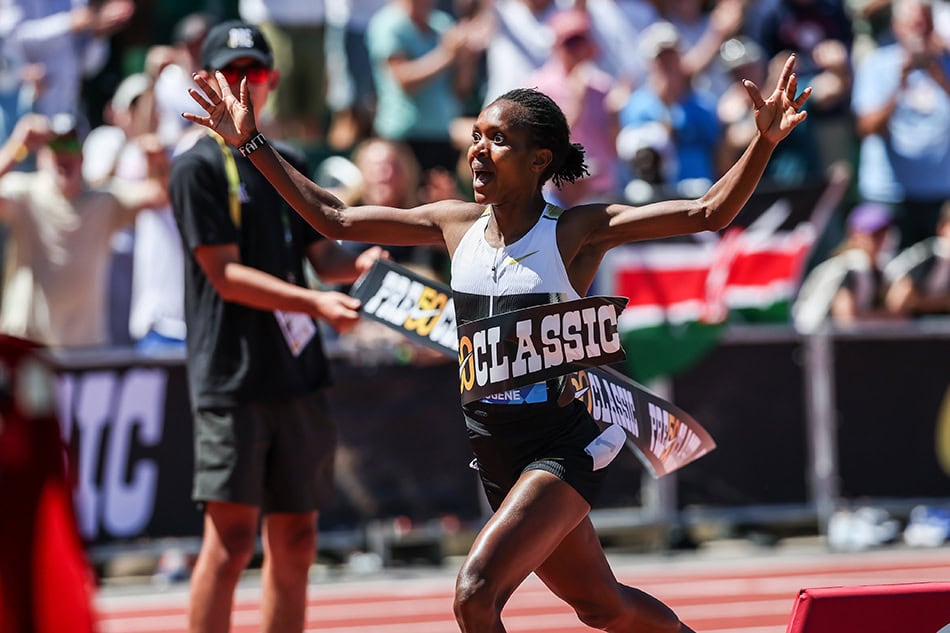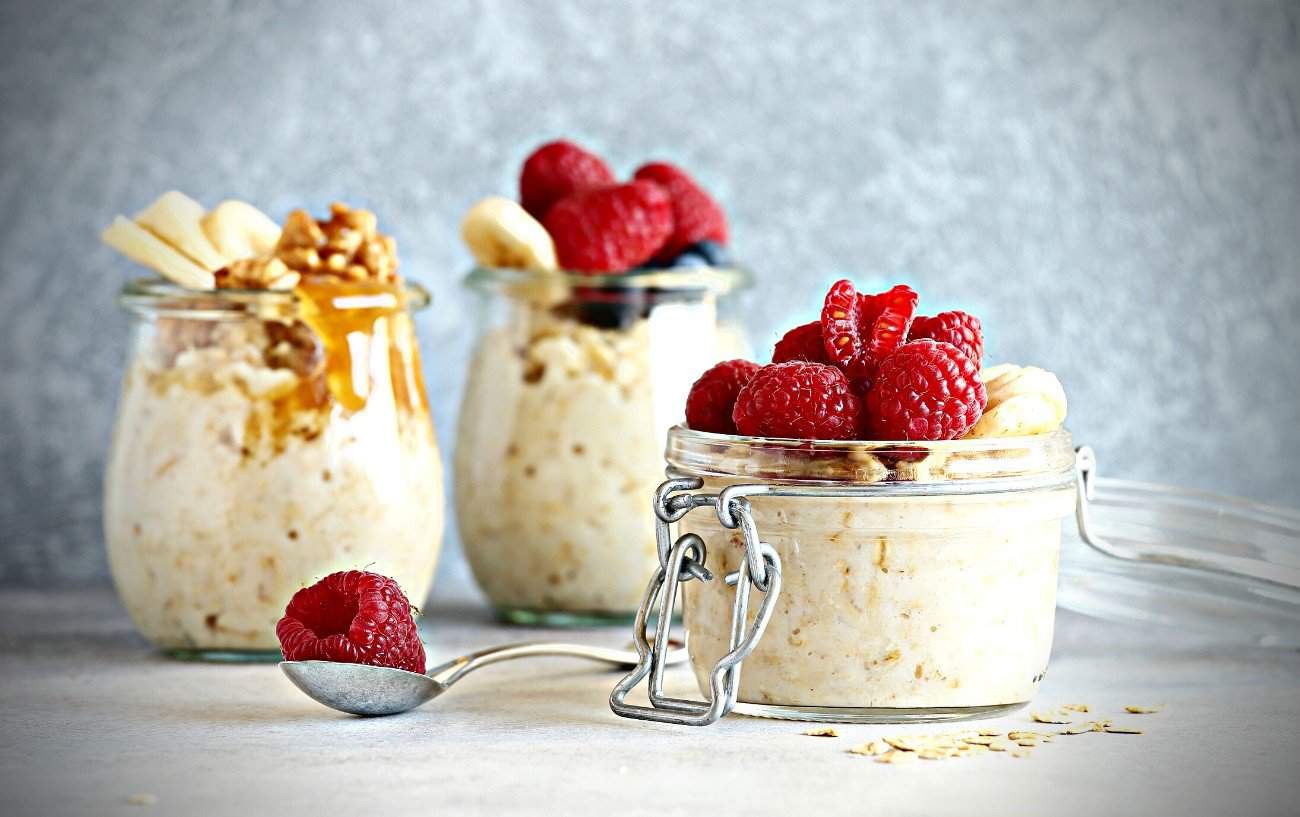Fueling properly before and after your run is one of the most important ways to set yourself up for success in your training and racing. A good breakfast can make the difference between feeling strong and energized or sluggish and fatigued during your run.
As a running and sports nutrition coach, I always emphasize that pre-run nutrition isn’t just about eating—it’s about fueling your body with the energy it needs to perform at its best while supporting recovery and long-term progress.
A pre-run snack packed with simple carbs ensures your muscles are fueled with glycogen, your blood sugar is stable, and your energy levels are primed for your workout.
After your run, refueling with protein, carbs and good fats is the key to kickstarting recovery, replenishing glycogen stores, and repairing muscles so you are ready for the next day’s workout.
In this guide, we’ll explore the best breakfast for runners—what to eat before and after running and how to tailor your meals to your specific training needs.

What Is the Best Breakfast For Runners?
Each runner will have different nutritional needs and preferences in terms of foods that settle well while running. The best way to find what works best for you is trial and error. Test out our different breakfast options and see what settles best while giving you the energy you need to perform.
In general, if you run first thing in the morning, you will want to eat your pre-run snack or breakfast anywhere from 1 to 3 hours before your session.
For everyday runs and workouts lasting around an hour or less, a pre-run snack is usually sufficient, and you can, hopefully, eat it just one hour beforehand, so you don’t have to get up super early to fit it in.
If you are racing or running a long run over an hour, you will want to consume more calories that will give you the energy you need to get through the entire run.
Generally, a good breakfast before running will be high in carbs but low in fiber, fat, and protein. It will also be generally light overall so that it settles well and you can run without any discomfort.
After your runs, you will want to eat a heartier, more balanced breakfast to replenish glycogen stores and help promote recovery that includes carbs, protein, and fat.
I have compiled some of the best breakfast ideas to help fuel your run before and after. The first half of the list is more carbohydrate-based, suggested for pre-run snacks, and the second half includes more protein, ideal for post-run breakfasts.
However, you can pick and choose the foods that will work for you for either meal.

#1: Oatmeal
Oatmeal is versatile, a good source of carbs, and can be “dressed up“ or “dressed down” based on how many calories you need to consume.
One of the benefits of oatmeal before a workout is that it can be prepared quickly, allowing you to head out the door without any delay.
Plus, quick oats oatmeal is great when you have limited time to digest because they are low in fiber and have faster-digesting carbs to give you energy for your run.
If your run is not for a few hours and you are eating an early breakfast, or your digestive system isn’t particularly sensitive, you can also add almonds, nut butter, blueberries, sliced bananas, honey, coconut flakes, pumpkin seeds, or hemp seeds.
Making oatmeal from rolled oats or steel-cut oats can take quite a bit of time (20 minutes or so). Because these latter types of oatmeal retain the oats in their more intact state, there is more fiber and longer polysaccharide molecules to break down.
While this is better for improving satiety and decreasing the blood sugar response, because whole-grain oatmeal is a lower glycemic food, it will take longer for the glucose to be available for your muscles to take up for fuel.
If you are using oatmeal for a post-run breakfast, you can add a scoop of protein powder or other protein-rich ingredients such as chia seeds, flaxseeds, nuts, and milk to improve the nutritional profile.
Additionally, by adding protein and healthy fats, you can increase the satiety1Paddon-Jones, D., Westman, E., Mattes, R. D., Wolfe, R. R., Astrup, A., & Westerterp-Plantenga, M. (2008). Protein, weight management, and satiety. The American Journal of Clinical Nutrition, 87(5), 1558S1561S. https://doi.org/10.1093/ajcn/87.5.1558s

#2: Bagels
Bagels are a great high-carbohydrate food and easy to digest. Top it off with your favorite jelly, jam, or honey, and you have a high-carb breakfast great for before a race or a long run.
If you are looking for a lighter option before a shorter run during the week, a slice or two of toast will also do the trick.
#3: Bananas
One of the best breakfasts for runners with only an hour or less to digest breakfast before running is to have a banana or half a banana with a tablespoon of nut butter.
You will get the simple carbs from the fruit and a little bit of fat and protein to keep you satiated without weighing down your stomach, causing bloating while running.
#4: Cereal
Eating cereal for breakfast gets a bad rap as low-carb diets are all the rage these days, and many breakfast cereals are packed with high fructose corn syrup or added sugars.
However, for us runners, the cereal aisle is our friend! The truth is that runners need carbohydrates to fuel muscles for longer runs and intense workouts.
A bowl of cereal or granola with a bit of milk before a run is a great, quick, and easy way to get energized for your session. Just make sure not to choose a high-fiber cereal, leave that for a post-run snack.

#5: Baked Goods
I love baking, so making a loaf cake like banana bread, blueberry muffins, or cookies to have on hand is another great quick and easy pre-run snack idea.
Just cut a slice or grab one and go!
#6: Egg Sandwich
Eggs alone generally aren’t a sufficient breakfast for runners who are putting in a lot of mileage because they do not provide any carbohydrates.
However, a post-run breakfast containing eggs can provide you with the muscle reparative protein you need.
You can make an omelet with a bunch of veggies, cheese, and lean meat, but make sure you have it alongside whole-grain bread, half a bagel, some fruit, or some hash browns so that you get some carb loading in to replenish muscle glycogen.
Alternatively, you could make an egg sandwich with whole-grain bread, a fried egg (or egg salad), a slice of tomato, and some lettuce for a well-balanced breakfast.

#7: Yogurt or Cottage Cheese
One of the best post-run breakfasts is a parfait made with yogurt or low-sodium cottage cheese.
If you aren’t sensitive to dairy, these are great foods for runners because they are high in protein but also contain some carbs.
You can then add berries, nuts, seeds, muesli, or low-sugar granola, depending on your caloric needs and dietary preferences. You can even add protein powder.
I also recommend adding hemp seeds, flax seeds, or other superfoods to help reduce inflammation after running.
#8: Smoothie or Protein Shake
Smoothies made with fresh or frozen fruit, vegetables, Greek yogurt, some protein powder, almond milk, and some nut butter or seed butter, if you need more calories, can be one of the best breakfasts for runners.
Especially if you are running in the summer, having a smoothie for breakfast after running is a great way to get the nutrients you need when you may lack an appetite; plus, drinking a post-run breakfast smoothie or protein shake will help you start rehydrating as well.

What Should I Do If I Can’t Eat Before Running?
If you have a lot of trouble eating anything before a run but need to get something in your system, you can also look at a sports drink that contains not just electrolytes but carbs as well.
A glass of orange juice also works. Eight ounces of orange juice1 contains about 27 grams of carbohydrates and 112 calories.
Or, you could take an energy gel before your run and eat a balanced breakfast afterward.
Meeting with a sports nutritionist can be very helpful in putting together a personalized plan for you and your goals, whether it be weight loss, weight gain, or athletic performance.
For even more ideas about what to eat before running, check out this next guide:












